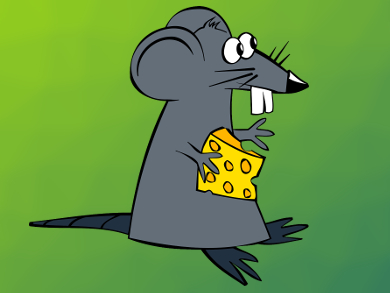Reducing the intake of calories can improve the lifespan and health of animals. Mirko Trajkovski, University of Geneva, Switzerland, and colleagues have restricted the calorie intake of mice for one month and found an increased amount of beige fat. This type of fat tissue that burns body fat and contributes to weight loss.
When the researchers transferred gut microbes from the calorie-restricted mice to other mice raised and living in sterile conditions, which do not have microbes in their gut, the receiving animals also developed more beige fat and were leaner—despite eating normally. The change of the gut microbiome alone improved the health of the mice.
The team found that the gut bacteria of mice on a calorie-restricted diet produced lower levels of lipopolysaccharides (LPS). This effect is caused by lowering the production of bacterial enzymes necessary for the biosynthesis of lipid A, a building block of LPS, through the suppression of the necessary genes. When the LPS-levels were changed back to normal levels in the blood, the mice lost many of the health benefits of the diet.
LPS triggers an immune response by activating a signal receptor known as the Toll-like receptor 4 (TLR4). The researchers were able to mimic the positive effect of caloric restriction by genetically modifying the immune cells of mice so that they lack this receptor. The researchers tested two potential anti-obesity drugs based on these results: one of them directly reduces toxic LPS production by the bacteria and the other blocks the TLR4 receptor that receives the LPS signal. Both had a positive effect on the mice that was similar to that of eating less.
- Functional Gut Microbiota Remodeling Contributes to the Caloric Restriction-Induced Metabolic Improvements,
Salvatore Fabbiano, Nicolas Suárez-Zamorano, Claire Chevalier, Vladimir Lazarević, Silas Kieser, Dorothée Rigo, Stefano Leo, Christelle Veyrat-Durebex, Nadia Gaïa, Marcello Maresca, Doron Merkler, Mercedes Gomez de Agüero, Andrew Macpherson, Jacques Schrenzel, Mirko Trajkovski,
Cell Metab. 2018.
https://doi.org/10.1016/j.cmet.2018.08.005


